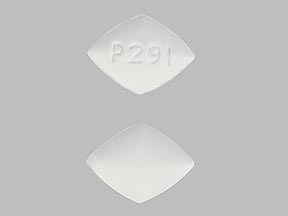Amiloride Dosage
Medically reviewed by Drugs.com. Last updated on Jul 24, 2025.
Applies to the following strengths: 5 mg
Usual Adult Dose for:
Additional dosage information:
Usual Adult Dose for Ascites
Initial dose: 5 mg orally once a day.
Maintenance dose: 5-10 mg once a day.
Usual Adult Dose for Congestive Heart Failure
Initial dose: 5 mg orally once a day.
Maintenance dose: 5-10 mg once a day.
Usual Adult Dose for Edema
Initial dose: 5 mg orally once a day.
Maintenance dose: 5-10 mg once a day.
Usual Adult Dose for Hypertension
Initial dose: 5 mg orally once a day.
Maintenance dose: 5-10 mg once a day.
Renal Dose Adjustments
CrCl < 25 mL/min: Not recommended.
CrCl 25-80 mL/min: The usual dose is decreased by 50%.
Liver Dose Adjustments
Data not available
Dose Adjustments
Amiloride may be increased to 10 mg once a day.
Precautions
US BOXED WARNING:
- HYPERKALEMIA: Like other potassium-conserving agents, this drug may cause hyperkalemia (serum potassium levels greater than 5.5 mEq/L) which, if uncorrected, is potentially fatal. Hyperkalemia occurs commonly (about 10%) when this drug is used without a kaliuretic diuretic. This incidence is greater in patients with renal impairment, diabetes mellitus (with or without recognized renal insufficiency), and in the elderly. When this drug is used concomitantly with a thiazide diuretic in patients without these complications, the risk of hyperkalemia is reduced to about 1% to 2%. It is thus essential to monitor serum potassium levels carefully in any patient receiving this drug, particularly when it is first introduced, at the time of diuretic dosage adjustments, and during any illness that could affect renal function.
Dialysis
Data not available
Other Comments
Amiloride is used to prevent hypokalemia in patients receiving diuretics or digoxin. Doses as high as 15-20 mg divided 1-2 times a day have been used.
More about amiloride
- Check interactions
- Compare alternatives
- Pricing & coupons
- Reviews (5)
- Drug images
- Side effects
- During pregnancy
- Drug class: potassium-sparing diuretics
- Breastfeeding
- En español
Patient resources
Other brands
Professional resources
Related treatment guides
See also:
Further information
Always consult your healthcare provider to ensure the information displayed on this page applies to your personal circumstances.


